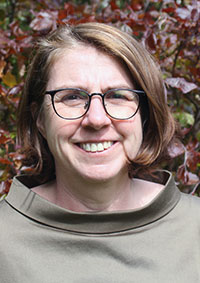Introduction into Granular Simulation Techniques - Simulation of Forearc Deformation Processes
Veranstalter: Katrin Huhn-Frehers
Introduction into modelling philosopy: why granular modelling approach
Characterisation of granular materials
Sandbox experiment - theory, applications, examples from geosciences
How to simulate the physical behaviour of granular materials
The Discrete Element Method - theory
Application of the Discrete Element Method - examples from geosciences
Overview about other granular modelling approaches
Simulation of fluid behavior with granular model approaches: SPH, DNS, overview
Case study: Forearc deformation - overview, database and theoretical background
Introduction into the software package: PFC
How to built a model - excersise: develop, test and validate your own model
Present and discuss your own modelling results
Basic knowledge in the theory of granular simulation techniques and the application of commercial software packages (PFC2D, PFC3D)to investigate geodynamic processes
Oral presentation
Kolloquium
1) Turcotte, D. L. & G. Schubert (2002): Geodynamics: Applications of Continuums Physics to Geological Problems. John Wiley and Sons, New York
2) Pöschel, T. (2001) Dynamics of granular systems; Logos, Berlin
3) Own course materials and exercise examples
1. SWS: Introduction into modelling philosopy: why granular modelling approach
2. SWS: Characterisation of granular materials
3. SWS: Sandbox experiment - theory, applications, examples from geosciences
4. SWS: How to simulate the physical behaviour of granular materials
5. SWS: The Discrete Element Method - theory
6. SWS: Application of the Discrete Element Method - examples from geosciences
7. SWS: Overview about other granular modelling approaches
8. SWS: Simulation of fluid behavior with granular model approaches: overview
9. SWS: Case study: Forearc deformation - overview, database and theoretical background
10. SWS: Introduction into the software package: PFC
11. SWS: How to built a model - excersise: develop, test and validate your own model
12. SWS: Present and discuss your own modelling results
13. SWS: Simulation with granular model approaches: SPH
14. SWS: Simulation with granular model approaches: DNS
Notebook-Pool
Eckdaten
05-BGW-GD3-1
Studiengang
Bachelor Geowissenschaften
Modulname
Geodynamic Modelling
Veranstaltungsart
Vorlesung, Übung (V+Ü)
3. Studienjahr
3 CP
2 SWS
Sommersemester
Kurssprache(n)
Deutsch und Englisch
Ansprechpartner

Dekanat
Prof. Dr. Katrin Huhn-Frehers
MARUM2 3040R
Tel.: +49 421 218 - 65860
khuhn marum.de
marum.de
Dekanat
Prof. Dr. Katrin Huhn-Frehers
MARUM2 3040R
Tel.: +49 421 218 - 65860
khuhn marum.de
marum.deVeranstalter

Dekanat
Prof. Dr. Katrin Huhn-Frehers
MARUM2 3040R
Tel.: +49 421 218 - 65860
khuhn marum.de
marum.de
Dekanat
Prof. Dr. Katrin Huhn-Frehers
MARUM2 3040R
Tel.: +49 421 218 - 65860
khuhn marum.de
marum.de
